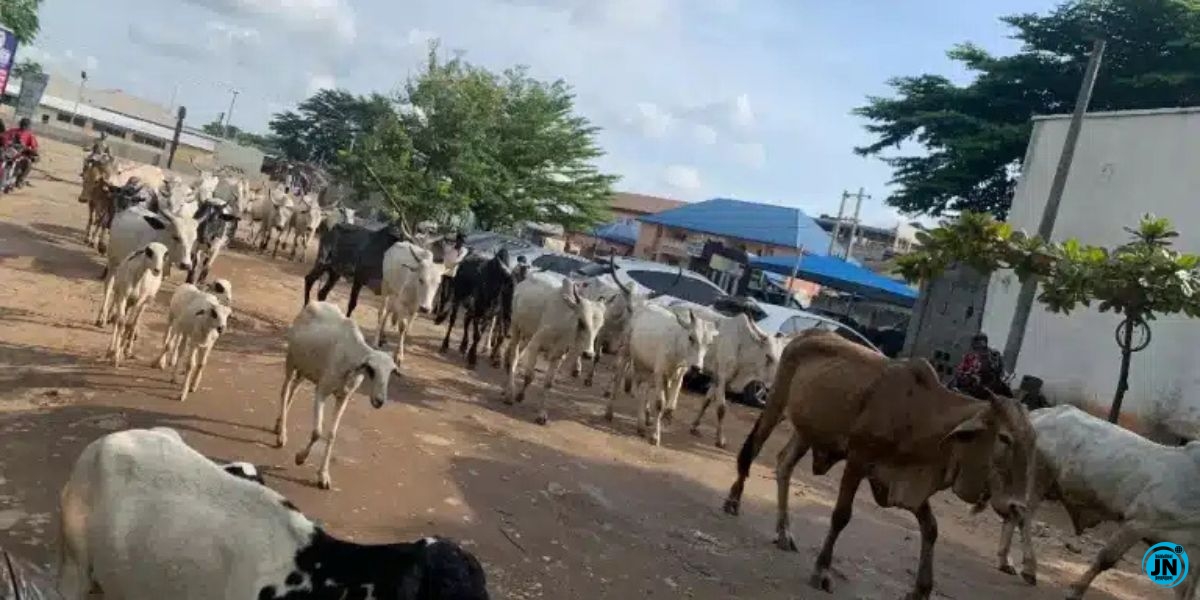
Wike initially made this commitment more than 16 months ago, shortly after being appointed by President Bola Ahmed Tinubu. In August 2023, the former Rivers State Governor made a public declaration regarding the urgent need to curb open grazing, stating, “We will consult with the herdsmen to see how we will stop [open grazing] because we cannot allow cows inside the city.” His statement was a clear indication of the administration’s intent to modernize farming practices and curb the uncontrolled movement of cattle in urban spaces. He reiterated this pledge in March 2024 during a meeting with the Belgian Ambassador to Nigeria, Daniel Bertrand, emphasizing that the government would take decisive action to end the practice in the FCT.
However, despite the long-standing policy declaration, observations by journalists over the past 16 months have shown that open grazing persists in many areas across Abuja, including its urban centers and satellite towns. Reports from the Daily Post reveal that cattle continue to graze freely in high-profile locations, seemingly without any meaningful enforcement of the policy. In August 2024, a large herd was seen grazing near the Defence Headquarters during peak hours, and in September 2024, another herd was observed near the Vice President’s new residence, which is directly across from the Office of the Secretary to the Government of the Federation. These incidents highlight the ongoing struggle to implement the open grazing ban, despite promises to the contrary.
Other areas affected by the open grazing issue include Asokoro Extension, Guzape, and along Airport Road, where herders regularly allow their cattle to graze on roadside grass, further contributing to congestion and traffic disruptions. Many residents have expressed frustration over the apparent lack of enforcement, and there are growing concerns about the effectiveness of the policy in achieving its stated goals. Shefiu Adio, a local taxi driver, observed that Wike’s directive to end open grazing is politically sensitive, as such orders are often seen as targeting northerners, who are predominantly involved in cattle rearing. “In Rivers State, that order would have been obeyed without question. But in Abuja, it is seen as an attack on northerners,” Adio remarked, as passengers in his vehicle expressed anger after cows blocked a road near the Defence Headquarters.
This sensitive political context has created a complex situation for the administration, as enforcing the open grazing ban in the capital has potential implications for national unity. The rapid urbanization of Abuja, with estates and developments replacing traditional grazing areas, has also contributed to the challenge. Many Fulani herding communities have been displaced as their settlements in areas like Katampe, Sabo Lugbe, and other parts of Abuja have been cleared by developers, leaving them without sufficient grazing space. Umar Ubandawaki, a cattle trader at Deidei Market, noted that the government must offer better solutions to the issue rather than relying on threats and directives. “The minister must offer better solutions rather than threats,” Ubandawaki advised, stressing that the newly created Ministry of Livestock could play a pivotal role in developing more effective and sustainable strategies for managing the country’s cattle industry.
Some residents of Abuja, disillusioned by the lack of enforcement, have even begun to cynically refer to the cattle as “government children,” reflecting a growing sense of resignation about the situation. Others noted that Wike has issued directives in the past, such as ordering the removal of beggars from the city, which were only partially enforced. While some actions were taken to address the presence of beggars, many still remain visible in various parts of the Federal Capital Territory, further casting doubt on the administration’s ability to fully implement its policies. The situation underscores the complexities of balancing urban development, political sensitivities, and effective enforcement of regulations in Abuja, the seat of Nigeria’s federal government.
The ongoing issue of open grazing in Abuja has sparked widespread debates about how best to balance the interests of different groups, including herders, urban residents, and government officials, while also ensuring the orderly development of the nation’s capital. The situation remains a significant challenge for Wike and his administration as they attempt to bring about meaningful changes in the city while navigating political sensitivities and competing priorities.

